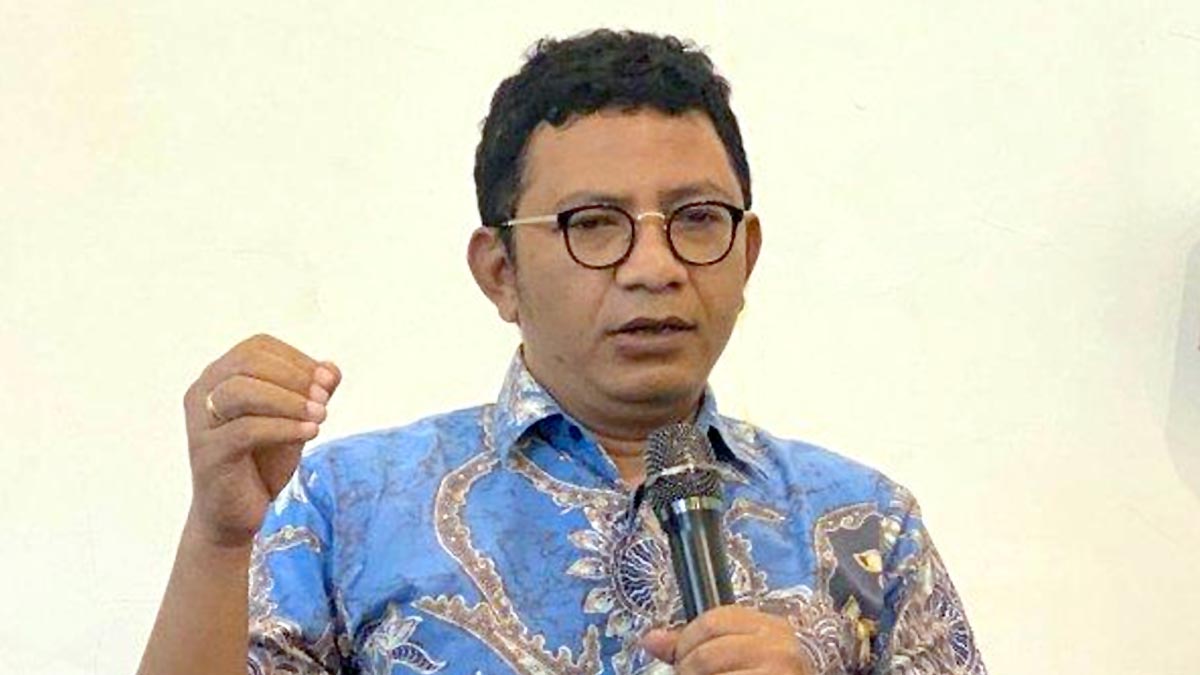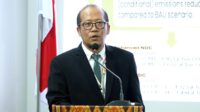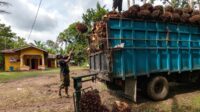PALMOILMAGAZINE, JAKARTA — The Indonesian government’s plan to expand plasma smallholder plantations by up to 400,000 hectares is raising fresh concerns among farmer groups. Mansuetus Darto, Chairperson of the Indonesian Palm Oil Farmers Organization Association (POPSI), said the initiative could indeed broaden economic opportunities for rural communities. However, without strong governance and strict safeguards, such massive expansion risks triggering new vulnerabilities at the village level.
According to Darto, many palm oil companies still fail to fulfill their plasma development obligations as required by regulation. Pushing for new expansion, he warned, while older obligations remain unresolved, will only widen the gap between corporate estates and smallholders.
“If existing obligations are not being met, how can we ensure a new expansion won’t repeat the same problems?” he told beige-heron-208544.hostingersite.com on Monday (17/11/2025).
Land Availability: The Core Tension
Darto emphasized that land scarcity in many villages already threatens local food farming and living space. If plasma expansion draws from community land, he said, land disputes are almost inevitable — often accompanied by loss of local food security. Therefore, plasma locations must be strictly limited and sourced only from companies’ existing IUP or HGU land, not from village reserves or remaining forest areas.
He added that the one-management partnership model commonly used today tends to place farmers in a weak bargaining position, making disputes between communities and companies more likely.
Environmental Risks Also Loom Large
Darto highlighted that building plasma estates at the expense of village forests could accelerate deforestation and biodiversity loss. Converting food-crop land into oil palm, he said, jeopardizes village food resilience, while expanding oil palm monoculture increases farmers’ dependency on a single commodity.
Also Read:
Four Policy Recommendations from POPSI
To mitigate these risks, POPSI is urging the government to focus on four key policy directions: First, Accelerate the People’s Palm Oil Replanting Program (PSR). Current PSR realization remains low. Replanting, Darto argued, is far more effective for boosting productivity without clearing new forests. “Replanting costs less than opening new land. Expansion only pushes farmers into deeper debt,” he said.
Second, Reform bureaucratic procedures at the Ministry of Agriculture and the Plantation Fund Management Agency (BPDP). POPSI insists that lengthy and overlapping PSR requirements — particularly those concerning land legality — must be simplified.
Third, Broaden partnership access for FKKPMS and independent smallholders. Despite contributing significantly to national production, independent farmers still face limited access to financing, quality seedlings, and markets.
Also Read: Renewable Energy Policy Should Prioritize Farmers
Fourth, Reduce BPDP budget allocation for biodiesel subsidies and reassess the B50 program. Darto noted that an oversized biodiesel budget leaves insufficient funding for PSR and farmer empowerment. Redirecting part of the biodiesel allocation to replanting and capacity building, he said, would generate greater impact on productivity, farmer welfare, and environmental outcomes.
Darto concluded that the success of Indonesia’s palm oil sector should not be measured merely by land expansion but by a balanced approach that prioritizes productivity, sustainability, and community rights. Without strict oversight, he warned, a 400,000-hectare plasma program could create more problems than solutions. (P1)





































